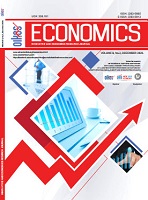Dual-Labor Market and Unemployment Compensation
Dual-Labor Market and Unemployment Compensation
Author(s): Taro AbeSubject(s): Labor relations, Fiscal Politics / Budgeting, Globalization
Published by: Oikos institut-Istraživački centar Bijeljina
Keywords: Dual labor market; unemployment compensation; wage-led economy; Egalitarian policy; Post Keynesian; Globalization;
Summary/Abstract: This paper discusses the impact of unemployment compensation on the employment and wages of regular and non-regular labor in a dual-labor market. The model in this paper assumes an effective demand constraint and an imperfectly competitive market. The results obtained are as follows. An increase in unemployment compensation increases the wages of regular labor to maintain its productivity. However, this temporarily decreases the employment of regular labor, so that the productivity and wages of non-regular labor decrease. The result is an increase in the relative wage rate of regular labor and the relative amount of non-regular labor employed. This result is independent of any economic regime. In terms of the impact on employment volume, the existence of two regimes, one wage-driven and one profit-driven, is confirmed. However, the effect on employment is weaker if unemployment compensation is financed by taxing profits.
Journal: ECONOMICS-INNOVATIVE AND ECONOMICS RESEARCH JOURNAL
- Issue Year: 8/2020
- Issue No: 2
- Page Range: 21-35
- Page Count: 15
- Language: English

